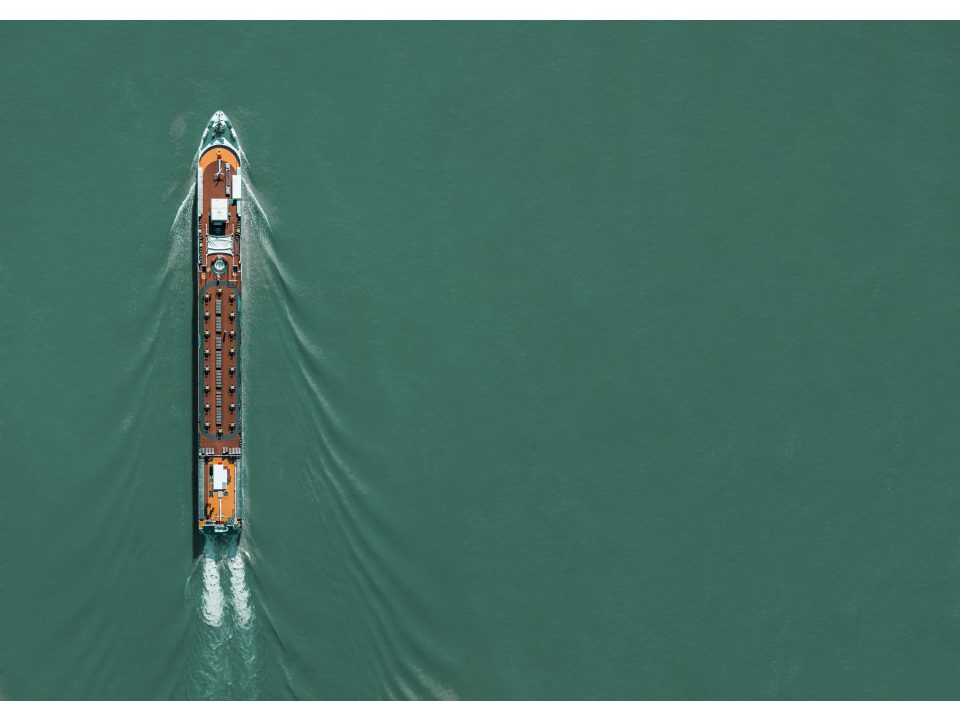Sea Tech Week® 2024: Vital European cooperation
- Organising the green transition for maritime transport along Europe’s Atlantic seaboard: European decarbonisation projects to feature at Sea Tech Week® 2024.
Photographie - Dominik-Reiter
Maritime transport already represents 4%* of greenhouse gas (GHG) emissions. This figure is continuing to rise and could reach 17% by 2050. Despite the fact that the IMO** has set a target of a 40% reduction in CO2 emissions by 2030 and a 50% reduction in overall GHG emissions by 2050, and the European Commission is committed to being carbon neutral by 2050 (Green Deal), the sector needs to step up a gear on decarbonisation.
This is the aim of SaferSEA and SMARTDEC, two European projects which will be showcased at Sea Tech Week® 2024. They are seeking to identify, survey and analyse emerging technologies for a safer, more environmentally conscious maritime sector. Both projects are bringing together public and private stakeholders from the European Atlantic seaboard to develop shared, tried and tested practices.
*According to the European Environment Agency (2022) maritime transport in Europe represented 4% of GHG emissions, more precisely 0.4% domestic and 3.6% international
**International Maritime OrganizationSaferSEA – ‘a safer, cleaner sea’
SaferSEA – working for a Smarter and Eco-friendlier Atlantic area – is a three-year European partnership project with 75% of its funding coming from the ERDF* through the Interreg Atlantic Area programme. It has a budget of €1.51 million. Françoise Duprat, Director of Technopôle Brest-Iroise, sets out the project's objectives:
“The aim of SaferSEA is to promote the development of a safer and cleaner maritime sector by providing stakeholders with solutions to support them in their green transition. The project will run for three years and will focus on two priorities – supporting stakeholders with the transition and identifying needs and the technologies currently in development which can be used to address them in areas such as cybersecurity and new propulsion systems."
“Our project partners include Cedre in Brest (experts in accidental water pollution), the Cork Business Innovation Centre (BIC) in Ireland and a Portuguese incubator. We’re making use of the existing local networks of our six partners in France, Ireland, Spain and Portugal to develop a specific network of companies working in the fields of interest to us. Our first project is to create a map of these companies and to organise themed study visits.
“We expect to add other activities in 2025, including launching a call for expressions of interest from start-ups and SMEs on decarbonisation, combating pollution and reducing accidents at sea. We also intend to identify needs with pilot projects to test prototypes and demonstrators. The project’s European dimension should enable us to find specific, strong examples at the local level and pool resources so we can develop joint responses to a shared Europe-wide objective.”
*European Regional Development FundSMARTDEC – “an interactive platform for cooperation between stakeholders in the maritime transport sector”
SMARTDEC is a three-year European project to develop smart clusters for maritime decarbonisation which was launched in January 2024. It is funded by the Interreg Atlantic Area programme and brings together 8 partners based in Ireland, France, Portugal and Spain. Phil Monbet, Director of Pôle Mer Bretagne Atlantique, outlines the project.
“SMARTDEC aims to coordinate and accelerate the adoption of decarbonised technologies by the maritime sector in the Atlantic area. The idea is to create a network and establish a platform for exchanges between stakeholders in the maritime transport sector, including decarbonisation solution developers, researchers and end users, such as ports and vessel owners. By bringing all the stakeholders together to create a unique network we can promote dialogue, encourage the adoption of new technologies and set out a harmonised decarbonisation strategy for maritime transport on the Atlantic seaboard. In the longer term, this strategy could be adapted and replicated in other places.
“It is essential that this project operates on a European scale, as processes are not harmonised among Member States. We have to remember that the ocean doesn’t recognise political borders and what happens in Ireland has an impact in France and Spain and vice versa. Our aim is to consolidate the impact of decarbonisation projects and to publicise and share them. We are already working to identify ‘decarbonising’ technologies – analysing their effectiveness, environmental impact and benefit-cost ratios. We want to establish smart hubs which can identify suitable technologies that provide the optimum solutions to match the needs, types of activity, vessels and use. The SMARTDEC platform should become operational in early 2025. We also plan to launch a call for expressions of interest so we can select eight promising innovative technologies to support.”Find out more about the SaferSEA and SMARTDEC projects at Sea Tech Week® 2024
SaferSEA will have a stand for all three days of Sea Tech Week® 2024, with representatives of its six partners. In addition, Cedre will run a workshop on 17 October on the use of ammonia as a new maritime fuel.
Pôle Mer Bretagne Atlantique will also have a stand throughout the event and the SMARTDEC project will be presented at the workshop on a common strategy and roadmap for maritime transport decarbonisation in Europe on 16 October at 3.15pm.About Sea Tech Week®
Technopôle Brest-Iroise organises Sea Tech Week® in its role as part of Campus mondial de la mer. Located at the tip of Brittany, the Campus is France’s premier community of experts studying and working with the ocean. This event is joint-financed by the European Regional Development Fund (ERDF), the Regional Council of Brittany and Brest Métropole.
Sea Tech Week® is officially recognised as part of the United Nations Decade of Ocean Science for Sustainable Development. It is organised in partnership with the European Commission and the European Parliament and the French General Secretariat for the Sea (SGMer).[Read more]
PRESS CoNTACT
Sea Tech Week 2024
Marie Boutron - m.boutron@rivacom.fr
06 20 95 33 42







